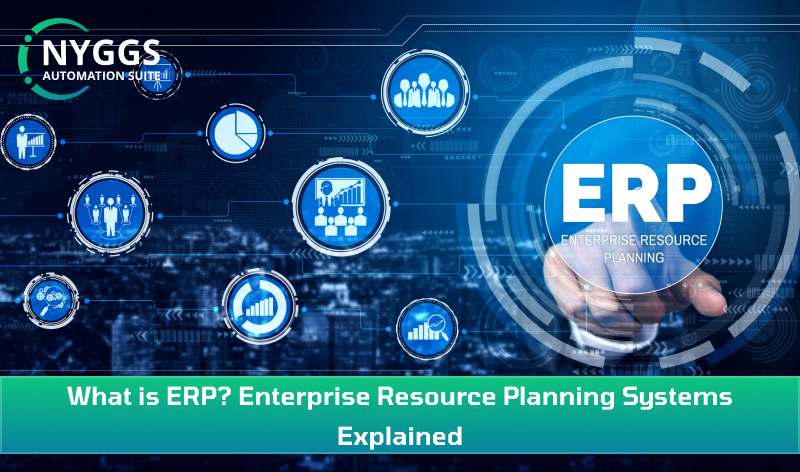In the highly competitive business environment, it is a must for companies to adopt techniques that boost their work quality. In such conditions, organizations are taking the help of various software to enhance work productivity. So, many companies are adopting ERP modules to improve overall business operations.
Table of Contents
ToggleIn addition, the ERP modules have various components that reduce any business’s workload. Additionally, they organize workflows, which drive towards enhancing productivity. Here is a detailed explanation of the ERP modules. Going through the points will help you understand how the software is changing the work dynamics.
What are Business Modules in the ERP System?
An Enterprise Resource Planning System integrates all business management functions. All industries are looking into ways to manage workflow visibility. Additionally, they also want to shed a burden on HR management to enhance work quality. ERP modules cover it all. Let’s look into the various functionalities of the system:
Project Management
One of the best ways to improve workplace efficiencies is by streamlining resource planning. This behavior also helps in improving project management strategies in the organization. ERP modules are vital across different industries in improving project management.
The ERP modules merge all aspects of a project into one centralized platform. The elements include budget details, invoicing & billing, contracts, deadlines, and proposals. Moreover, this feature helps the entire team to stay updated.
Furthermore, it has been observed by users that the software can assist in all stages of project management. Project analysis, design, development, and ongoing maintenance are all covered under ERP modules.
Supply Chain Management
In industries like e-commerce, construction, and retail, supply chain management plays an integral role. For instance, in e-commerce, retailers must source, store, and deliver products managed under the supply chain. ERP modules help retailers optimize the supply chain.
Also, the software helps keep track of warehouse management and logistics to ensure delivery on customer expectations. Additionally, the software also keeps costs in check. ERP modules bring clear visibility to supply chain management.

ERP modules give access to real-time data across the supply chain. This feature lets stakeholders make better decisions on how to take the process further. It enables you to manage a clear path from procurement to inventory management. Automation reduces human error and accelerates supply chain operations. Additionally, it leads to both time and cost savings.
Inventory Management
From MSMEs to large-scale businesses, having the right ERP modules for Inventory Management is crucial. Work productivity is boosted by a system that tracks orders, warehouses, and inventory. Consequently, this module in enterprise resource planning software makes it all possible.
The ERP modules let you manage all your sales and purchase actions. Optimizing the details allows you to easily track bills, invoices, and payments. You can even control and monitor your stocks in different warehouses. With the help of the software, anyone can quickly track item movements and generate detailed reports.
Moreover, optimizing the product details makes tracking saleable items, spare parts, and expiry dates easy. Get accurate inventory aging reports, vendor payments, sales details, and inventory valuations with ERP modules.
Management Information System (MIS)
Every business needs a solution that enhances workflow visibility. Building better coordination between multiple work sites is necessary to reduce confusion. The Management Information System in ERP modules offers that.
For instance, when we talk about the construction industry, they work on multiple sites. Here, the managers need to track sub-contractors and check on their plants and assets or building materials. To manage all that, you require clear communication, which MIS modules in ERP enhance.
Certainly, updating the information manually can increase the chance of human errors. The ERP modules let you optimize databases and spreadsheets to reduce risks. Under this feature, you can keep track of all available data and make a detailed report.
Customer Relationship Management
This feature in ERP modules is designed to foster customer interactions. It includes features like lead management, customer service, and marketing automation. Additionally, it also helps in developing customer analytics.
These ERP modules help businesses enhance customer satisfaction, which ultimately drives sales growth at your organization. This feature allows companies to capture and track leads. Besides, it also lets you view communication history and track opportunities. This feature helps managers make informed decisions and close deals effectively.
HR & Payroll Management
It is one of the most significant ERP modules. This feature is becoming a shared vocabulary for HR personnel. Further, it simplifies all the processes and enables handling HR functions using artificial intelligence.
The most significant feature of these ERP modules is payroll calculations. It has made tricky and tedious calculations for HR personnel. Payroll calculations can be challenging in industries with high employee strength. Additionally, manual counts of such a high number of employees can lead to human mistakes. So, adopting ERP modules in such places can be a thoughtful task.
Moreover, these ERP modules reduce the extra administrative tasks the HR needs to perform. That indicates they can focus more on building productivity in the organization. Some payroll ERP modules also contain the Aadhaar verification feature, which helps in blacklisting unworthy candidates.
Workforce Management
It is another vital feature of the Enterprise Resource Planning System as it promotes efficient workforce management and optimizes productivity. This solution helps organizations automate the staff’s time and efficiently deploy the labor force.
Additionally, automating all the data encourages employee and management self-service. It promotes transparency in the working environment. These ERP modules also ensure proper resource allocation, which supports workforce efficiency.
In short, businesses can maximize employee productivity by streamlining the workforce management process within ERP modules. It helps maintain labor regulations, ultimately increasing organizational effectiveness and success.
Conclusion
By witnessing the features, we can conclude that the ERP modules are revolutionizing the working of every industry. While different industries have different needs, every company strives to stay ahead of the competition. And implementing ERP modules makes it possible to sustain a fiercely competitive environment.
Most of the administrative works are optimized, which helps businesses focus on productivity. Additionally, streamlining the workforce and working environment helps make informed decisions for the company. Ultimately, it leads to making businesses stay ahead in the game by overcoming all the shortcomings.







